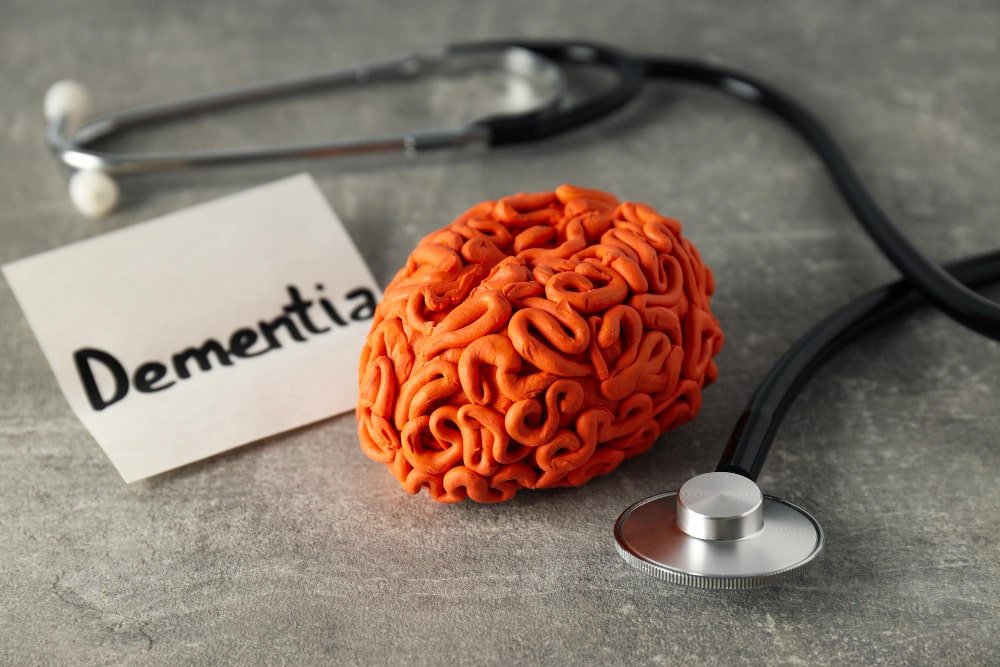Lewy body dementia (LBD) is a progressive neurological disorder characterized by abnormal protein deposits known as Lewy bodies in the brain. These deposits disrupt the brain’s normal functioning, leading to cognitive decline, memory issues, mood fluctuations, and physical symptoms similar to Parkinson’s disease. Unlike other types of dementia, such as Alzheimer’s, Lewy body dementia is associated with more rapid fluctuations in cognitive abilities, frequent visual hallucinations, and motor difficulties.
Understanding the 7 stages of Lewy body dementia can provide insights into how the disease progresses and what to expect as it unfolds. Though every individual’s experience with the disease is unique, experts have categorized its progression into seven stages, helping caregivers and medical professionals better manage and anticipate its effects.
Stage 1: No Impairment
In the earliest stages of Lewy body dementia, individuals typically show no noticeable symptoms. Cognitive function, memory, and physical abilities remain intact. This stage is often referred to as the “preclinical” phase. Although Lewy bodies might already be forming in the brain, their presence does not yet manifest in ways that affect the person’s day-to-day life. This is similar to the early stages of many other neurodegenerative diseases, where changes in the brain occur long before symptoms become evident.
At this stage, it’s challenging, if not impossible, to detect Lewy body dementia. Most individuals are unaware that anything is amiss, and routine medical check-ups are unlikely to reveal any abnormalities. However, early intervention can sometimes slow the progression if the disease is suspected based on risk factors or family history.
Stage 2: Very Mild Cognitive Decline
Stage 2 involves minor changes in cognitive function, often mistaken for normal aging. Individuals might experience occasional forgetfulness, such as misplacing items or struggling to remember names. However, these symptoms are typically not severe enough to impact their daily lives significantly.
This stage is still subtle, and many people may not associate these minor lapses with dementia. Friends, family, and even healthcare professionals might dismiss the signs as a normal part of growing older. At this point, medical tests or neuroimaging might still not provide conclusive evidence of Lewy body dementia.
Stage 3: Mild Cognitive Decline
By stage 3, cognitive decline becomes more noticeable. Individuals may begin to experience difficulties in performing complex tasks, such as managing finances, organizing events, or keeping track of appointments. Short-term memory issues become more apparent, and problem-solving abilities may start to deteriorate.
At this stage, friends and family may begin to recognize changes in the individual’s behavior. Decision-making becomes challenging, and the person might require assistance in situations that involve planning or multitasking. While still maintaining some level of independence, individuals in this stage often become frustrated by their cognitive limitations. Although the symptoms are mild, they represent the early clinical signs of Lewy body dementia.
Stage 4: Moderate Cognitive Decline
Stage 4 is marked by moderate cognitive decline, and the symptoms become difficult to ignore. Memory problems are more pronounced, and individuals may struggle with tasks they previously managed independently. For example, they may have difficulty remembering personal history or need help with basic daily activities such as cooking or managing household chores.
Visual hallucinations, a hallmark of Lewy body dementia, often begin in stage 4. Individuals may report seeing people, animals, or objects that aren’t there. These hallucinations can be vivid and disorienting, leading to fear or confusion. Mood fluctuations and behavioral changes, such as increased anxiety or depression, may also develop during this stage. As these symptoms intensify, caregivers and family members often need to step in to provide more hands-on assistance.
Stage 5: Moderately Severe Cognitive Decline
By stage 5, individuals experience moderately severe cognitive decline. Memory loss and confusion are now prominent, and people may struggle to recall important details about their own lives, such as their address or phone number. They often require assistance with most activities of daily living, including dressing, bathing, and eating.
Hallucinations and delusions become more frequent and may cause significant distress. In this stage, motor symptoms similar to Parkinson’s disease, such as tremors, muscle stiffness, and slow movement, often become apparent. These physical symptoms, combined with cognitive decline, can make mobility and balance difficult, increasing the risk of falls. Caregivers usually need to provide extensive support at this stage, as individuals are no longer able to live independently.
Stage 6: Severe Cognitive Decline
The 7 stages of Lewy body dementia stage 6 is characterized by severe cognitive decline. Individuals in this stage experience substantial memory loss and confusion, often unable to recognize family members or close friends. Their understanding of time, place, and events becomes deeply impaired. Communication is difficult, and verbal abilities are often reduced to simple phrases or words.
At this point, individuals require constant care and supervision. They may lose control over bodily functions and require help with eating, toileting, and personal hygiene. Mood swings and behavioral changes can become severe, and hallucinations may persist. Physical symptoms worsen, with increased muscle rigidity and difficulty walking or moving without assistance. Falls are common, and individuals are highly susceptible to infections, particularly pneumonia and urinary tract infections, due to their weakened state.
Stage 7: Very Severe Cognitive Decline
The 7 stages of Lewy body dementia the final stage of Lewy body dementia is marked by very severe cognitive decline. Individuals cannot respond to their environment, carry on a conversation, or control movement. Most are bedridden or confined to a wheelchair at this stage, entirely dependent on others for care.
In stage 7, communication is often limited to unintelligible sounds or expressions of discomfort. Swallowing becomes difficult, and individuals are at high risk of choking or aspirating food. Many develop complications such as infections or respiratory issues, which can lead to hospitalization or death.
Care during this stage focuses on comfort and quality of life. Palliative or hospice care may be recommended to manage pain and ensure the individual’s dignity is maintained as they approach the end of life.
